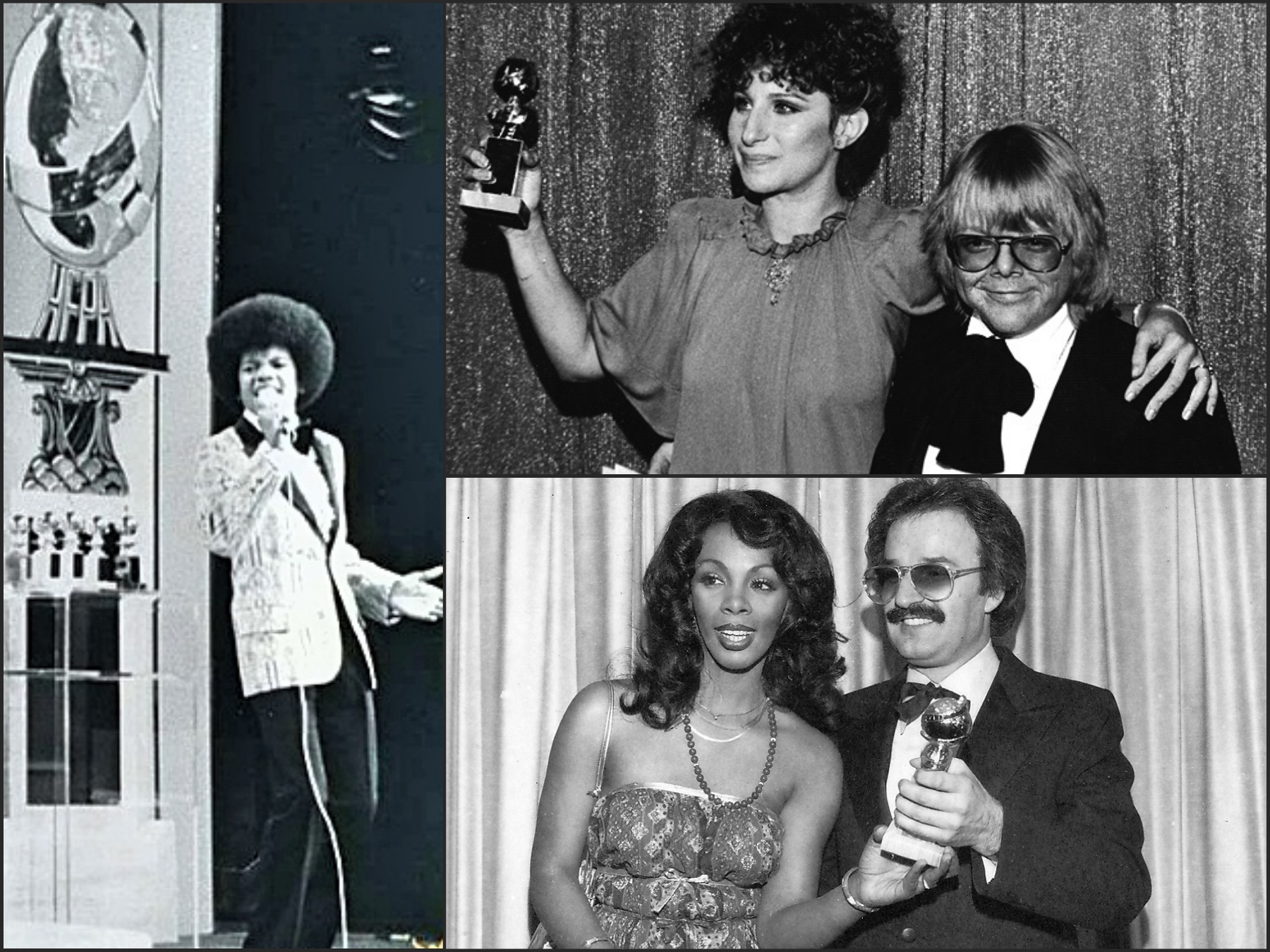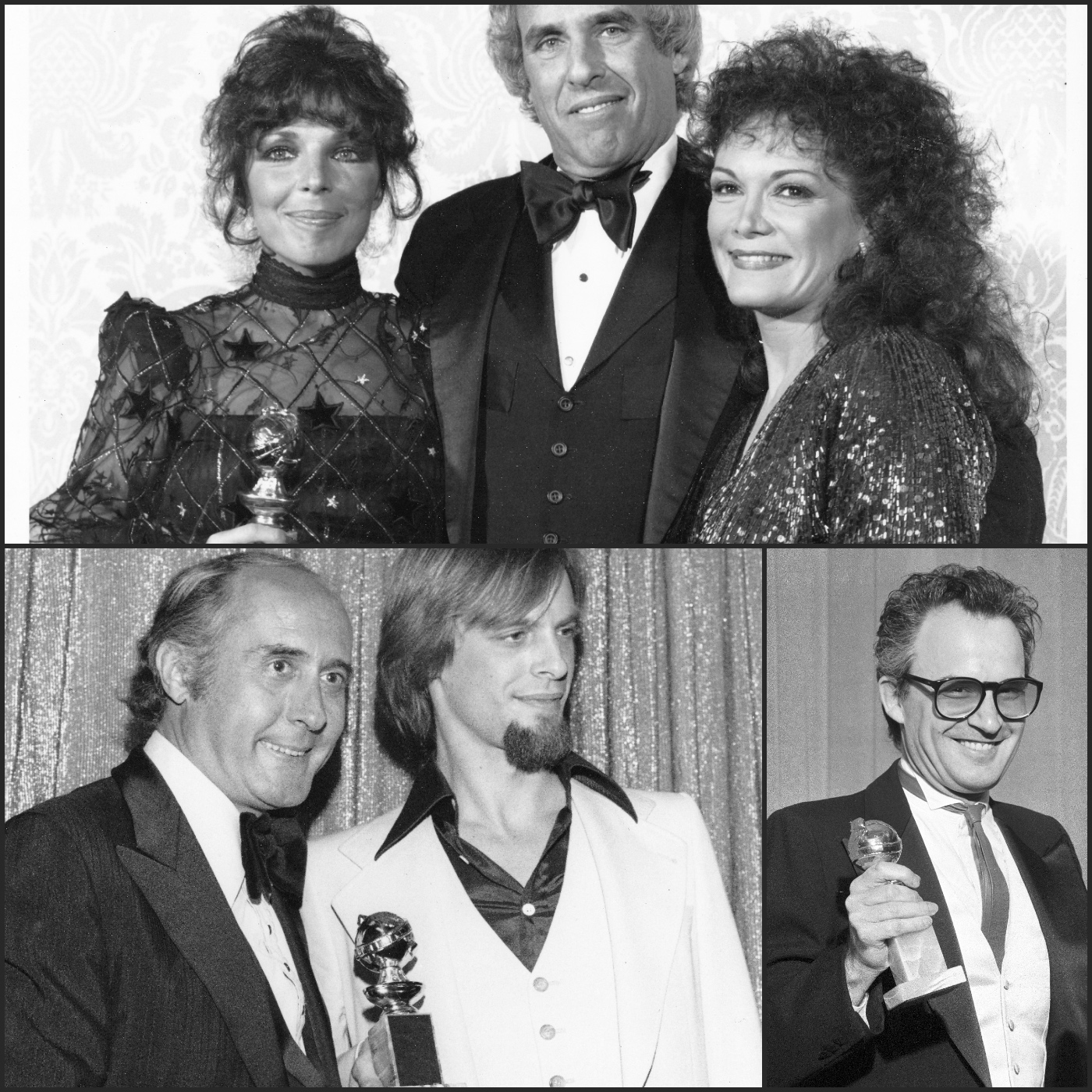
- Golden Globe Awards
Music and the Golden Globes: a Brief History – Part 2
After dithering around with their music awards for so many years — nominations one year, no awards another — the Hollywood Foreign Press Association finally decided to take the category seriously. Even though the 1970 Golden Globe for best song went to “Jean” from The Prime of Miss Jean Brodie, sidestepping the Academy’s choice, “Raindrops Keep Falling on My Head,” the HFPA made amends by agreeing on Burt Bacharach’s Butch Cassidy and the Sundance Kid as best score. 1971 was surely one of the weakest years ever for Best Song, the HFPA settling on “Whistling Away the Dark” from Darling Lili, and the Academy going with “For All We Know” from Lovers and Other Strangers. On the other hand, Francis Lai’s lilting score for Love Story won both the Oscar and the Golden Globe.The following year was no better for songs. The Golden Globe winner was “Life Is What You Make It” from Kotch, and the best score was Isaac Hayes’ Shaft. The Academy doubled down on Hayes giving him both Best Song and Best Score. 1973 ushered in Hollywood’s New Golden Age, but the music awards hardly reflected it. Nino Rota’s score for The Godfather was ruled ineligible by the Academy because its theme had been used in an earlier Italian film. But that didn’t faze the HFPA. They gave Rota his well deserved Golden Globe. The Academy, however, found a way to redeem itself. They gave their award to Charlie Chaplin for his 1952 Limelight, which because of political pressure had never played in Los Angeles. The Golden Globe for Best Song went to Michael Jackson’s “Ben” from the film of the same name and the Academy’s choice was “The Morning After” from The Poseidon Adventure. 1974, another unimposing year for songs, but coming to the rescue once again, Marilyn and Alan Bergman. Their song with music by Marvin Hamlisch, “The Way We Were” from the film of the same name, became an instant classic and won both the Golden Globe and the Academy Award. Hamlisch himself won no less than three Oscars that year, the other two for Best Score (The Way We Were) and Best Adapted Score (The Sting.) The HFPA’s surprising choice for best score was Neil Diamond for Jonathan Livingston Seagull.1975 saw a repetition of 1972, with the Golden Globe going to another kids’ movie, Benji, and the Oscar going to the composers of “The Morning After.” Their Towering Inferno song, “We May Never Love Like This Again” and the Globe winner “I Feel Love” were not likely to be heard of again. The Academy made amends by giving Nino Rota its best score award for Godfather 2. The HFPA’s choice, inexplicably, was Lerner and Lowe’s The Little Prince.

In retrospect, you could say the 70s was the worst decade for songs in motion picture music history. Even in 1976, there wasn’t much to choose from, but at least consensus. Both Golden Globes and Oscars went to Keith Carradine’s “I’m Easy” which he had written for his character in Nashville (Best Song) and to John Williams, for his history-making score for Jaws. 1977, again, both the Golden Globe and the Academy Award went to Barbra Streisand for her song “Evergreen,” with lyrics by Paul Williams, from A Star Is Born. The film also won the Golden Globe for best score, but the Academy preferred Jerry Goldsmith’s The Omen. Leonard Rosenman’s Bound for Glory won for Adapted Score. 1978: the competition included Carly Simon’s “Nobody Does It Better” from The Spy Who Loved Me, but “You Light Up My Life” from the film of the same name won both the Golden Globe and the Academy Award as best song, and the two groups agreed on best score as well, John Williams for Star Wars. The same happened again in 1979, best song “Last Dance” from Thank God It’s Friday and best score Giorgio Moroder for Midnight Express. But in 1980 there was no consensus because of a technicality. “The Rose” from Bette Midler’s movie of the same was the Golden Globe winner for best song, but when composer Amanda MacBroom inadvertently blurted out that the song wasn’t written for the movie, the Academy disqualified it. Their rule: only songs written directly for a movie are eligible. Instead, they chose “It Goes Like It Goes” from Norma Ray, which soon went. The Golden Globe for best score was Francis and Carmine Coppola’s Apocalypse Now. The Academy preferred Georges Delerue score for A Little Romance.Now for the 80s, the AIDS decade, which decimated the Broadway theatre but was yet to have its full impact on the Hollywood scene. 1981 was the year when both the HFPA and the Academy selected “Fame” from the film of the same name, as best song, music by Michael Gore and lyrics by Dean Pitchford. The Academy, as they had done in 1971, also gave Gore its Best Score award, but they had concerns with Dominic Frontiere’s essential score for The Stunt Man and refused to nominate it. The Hollywood Foreign Press loved the score and enthusiastically gave him the Golden Globe.The following year both the Academy and the Hollywood Foreign Press chose “Arthur’s Theme, Best That You Can Be” as best song, It set a record for most composers of one song, ever. Taking credit for it were Peter Allen, Burt Bacharach, pop star Christopher Cross (who supposedly wrote just one line) and Carole Bayer Sager. That memorable line was, “When you get caught between the moon and New York City.” For some strange reason, there was no Golden Globe for Best Musical Score that year. What was wrong with Vangelis’ score for Chariots of Fire? It won the Oscar.1983 was again a consensus year, both the HFPA and the Academy agreeing on “Up Where You Belong” from A Soldier and a Gentleman as best song, and John Williams’ E.T The Extra-Terrestrial, as best score. 1984, “Flashdance, What a Feeling” from Flashdance was both the HFPA and the Academy’s choice for Best Song. But they went in different directions for best score. The Golden Globe went to Giorgio Moroder for Flashdance, and the Oscar went to Bill Conti for The Right Stuff, surprisingly his only win, ever, despite his Rocky fame. 1985 once again a consensus year. Both the Golden Globes and Oscars went to “I Just Called To Say I Love You” from The Woman in Red as Best Song and Maurice Jarre‘s A Passage to India as Best Score.In 1986, again consensus. Both the Golden Globes and the Oscars went to John Barry’s score for Out of Africa and Lionel Ritchie’s “Say You, Say Me” from White Nights. 1987 “Take my Breath Away” from Top Gun wins both the Oscar and the Golden Globe for best song, but the best score again goes in different directions. The HFPA favors the presumptive choice, Ennio Morricone‘s The Mission, but to everyone’s surprise, the Oscar goes to Herbie Hancock for his Round Midnight score. What did the Academy’s music branch have against Ennio Morricone?!

